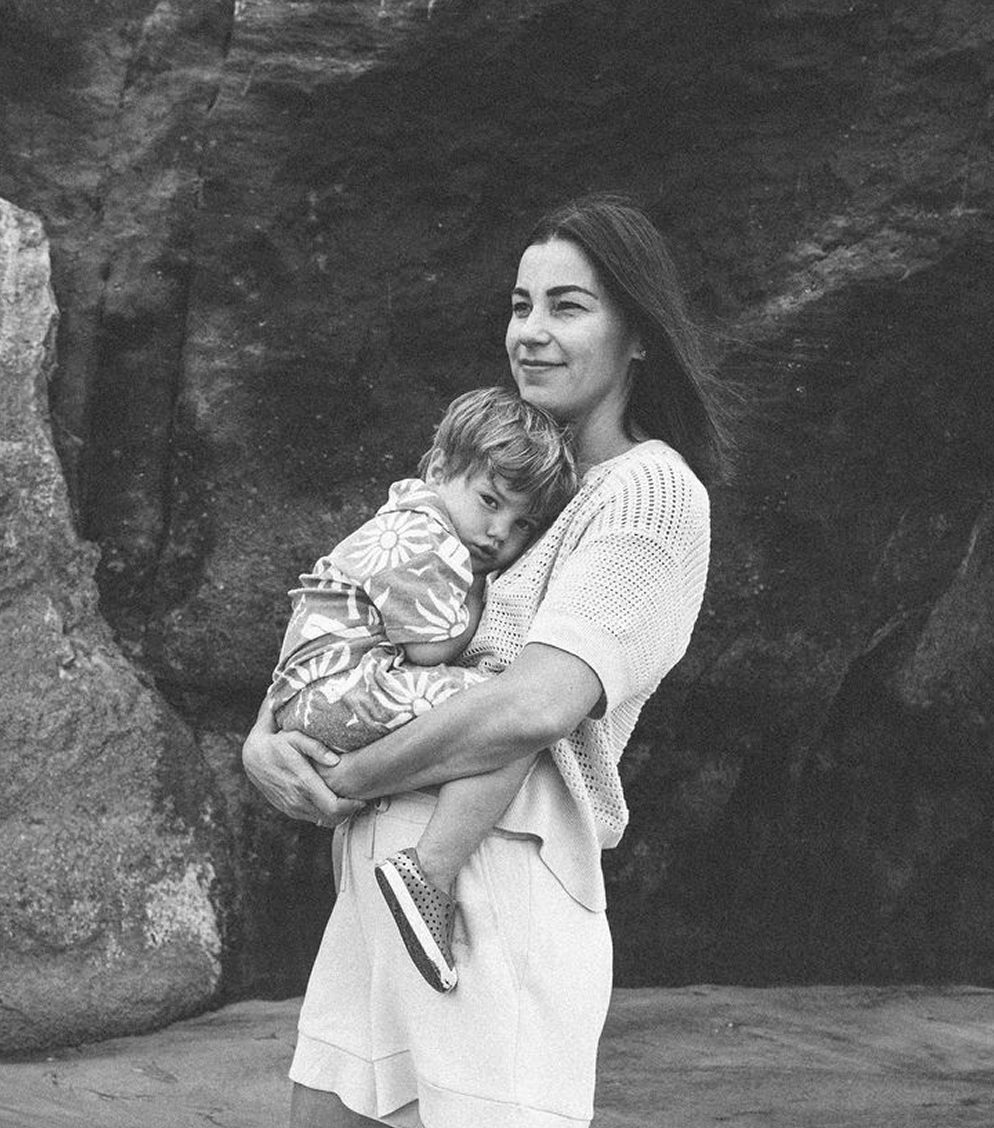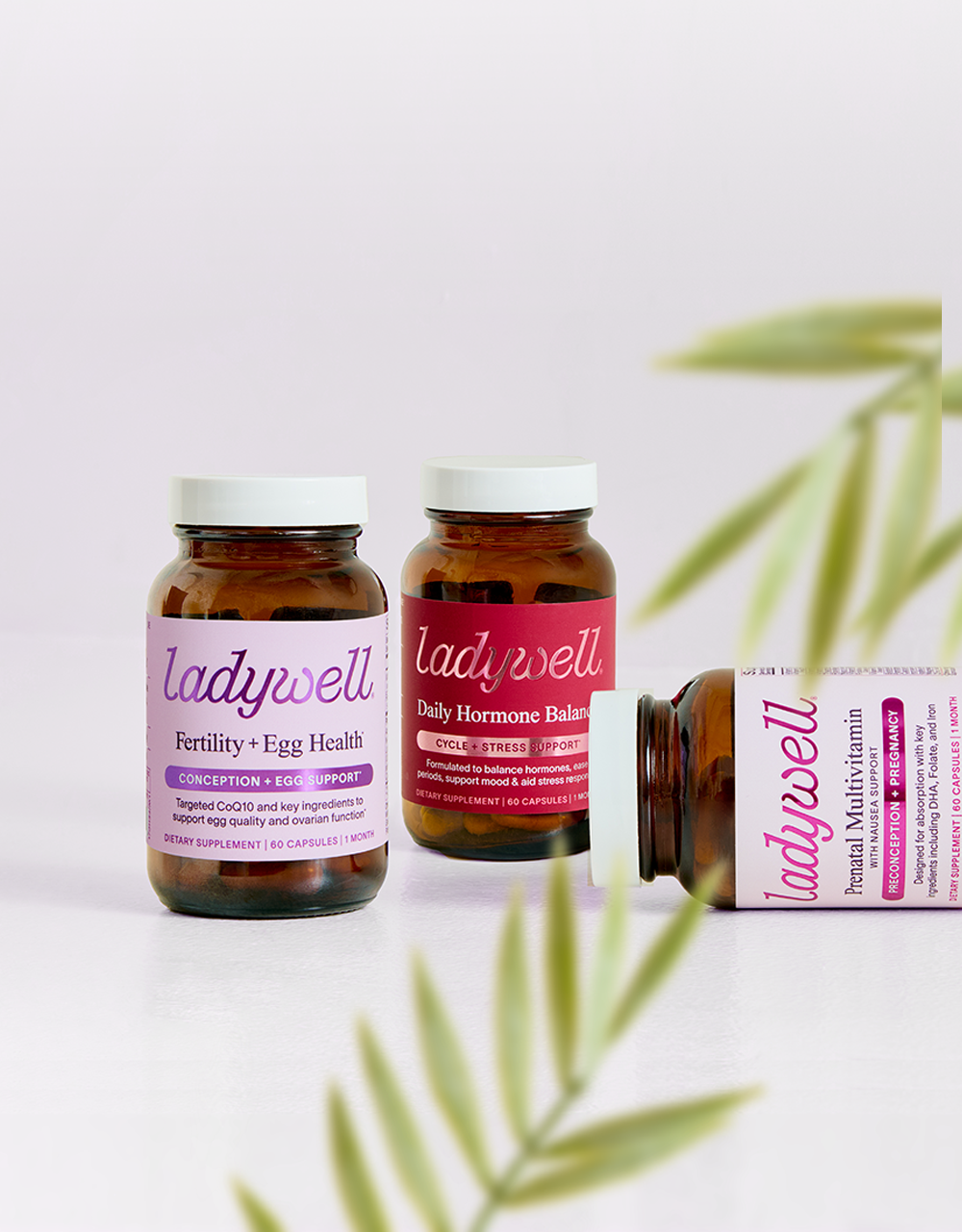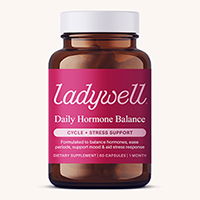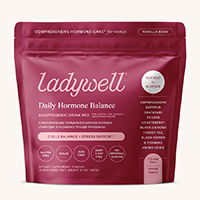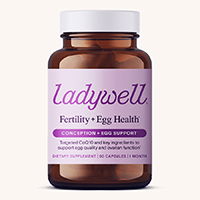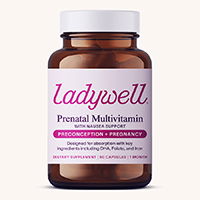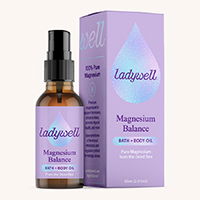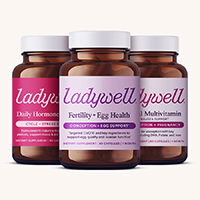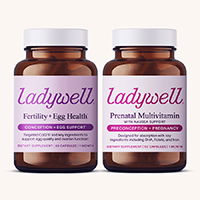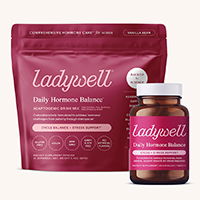Bringing a new life into the world is an incredible journey, but let's be real – it can also throw your body for a loop.
If you're feeling a little out of sorts after giving birth, it's not just the lack of sleep (although that's definitely part of it!).
Your hormones are on a wild ride and it's totally normal to experience some ups and downs.
But don't worry; we're here to help you understand the signs of hormone imbalance after pregnancy and how to get back to feeling like yourself again.
What's Happening with My Hormones?!
After you give birth, your body goes through a major hormonal shift that can feel like a rollercoaster ride.
Estrogen and progesterone, the hormones that helped your baby grow and kept you feeling pretty good during pregnancy, take a nosedive right after delivery. It's like your body hits the brakes hard on those hormones, and the sudden stop can leave you feeling a bit shaken up.
Meanwhile, other hormones like prolactin, which is responsible for milk production, start to surge.
It's a bit like a hormonal traffic jam, with different hormones vying for the right of way in your body.
This hormonal chaos is the main culprit behind many of the common postpartum symptoms you might be experiencing, leaving you feeling like a different person.
But here's the thing, mama: it won't last forever.
Your body is incredibly resilient and will gradually find its new hormonal balance.
In the meantime, understanding what's happening can help you feel less alone and more empowered to navigate this wild ride.
Signs of Hormone Imbalance After Pregnancy
Every woman's postpartum experience is different, but there are some common signs of hormone imbalance to watch out for.
Mood Swings
Feeling emotional or irritable for no reason?
This is a common sign that your hormones are trying to find their footing. It's completely normal to have a few good cries or feel a little short-tempered.
Fatigue
Exhaustion is par for the course when you're caring for a newborn.
But, if you're feeling completely wiped out even after getting some rest, hormones could be playing a role.
Sleep Problems
Tossing and turning all night? Even when the baby sleeps, you struggle to get your well-deserved shut-eye.
Melatonin (the sleep hormone) changes can make it difficult to fall and stay asleep.
Low Libido
Not exactly in the mood? It's common for your sex drive to take a dip after giving birth.
Low estrogen levels can cause vaginal dryness and make you less interested in sex.
But if you're concerned about your lack of interest, talk to your doctor.
Hair Loss and Skin Changes
You might notice your hair shedding or your skin acting up. This is often due to the drop in estrogen, and it usually gets better with time.
Night Sweats and Hot Flashes
These can be surprising if you're not in perimenopause yet, but they're sometimes caused by the hormonal shifts after pregnancy.
Brain Fog
Can't remember where you put your keys? Having trouble focusing? This "mommy brain" is often linked to hormonal changes.
These are just some of the postpartum hormone imbalance signs.
Talk to your doctor or midwife if you're experiencing any of these symptoms. They can help you figure out what's happening and offer solutions to help you feel better.
How Long Does it Take for Hormones to Balance After Birth?
This is the million-dollar question, right?
Every woman is different, but most major hormonal changes happen in the first six weeks postpartum.
It can take anywhere from a few months to a year for your hormones to completely return to their pre-pregnancy levels.
Breastfeeding can also affect your hormone levels, often delaying the return to "normal."
How to Balance Hormones Postpartum
Now for the good news: there are many things you can do to support your body's natural hormone-balancing process.
So, what can you do to help your hormones find their balance again?
- Nourish Your Body. A healthy, balanced diet is crucial for postpartum recovery and hormonal health. Focus on whole foods like fruits, vegetables, lean proteins, and healthy fats. Avoid processed foods, sugary drinks, and excessive caffeine, which can worsen hormonal imbalances.
- Prioritize Sleep (Whenever Possible!). We know, we know, easier said than done with a newborn. But even short naps or resting when the baby sleeps can help your body recharge and regulate hormones.
- Exercise Gently. Take your time jumping into intense (if you choose) workouts. Gentle exercise like walking or yoga can help regulate hormones and boost your mood.
- Manage Stress. Find healthy ways to manage stress, whether deep breathing, meditation, or spending time in nature. High stress levels can wreak havoc on your hormones. Taking time for yourself is essential for your well-being, so don't feel guilty.
- Try Supplements. Certain supplements, like our Ladywell options, can support your hormonal balance. Our formulas are specifically designed to help women balance their hormones. Always talk to your doctor before starting any new supplements, especially if you're breastfeeding.
Remember, every woman's body is different. What works for one mom might not work for another.
It's important to listen to your body and experiment with different approaches to find what feels best.
When to Seek Professional Help
While most postpartum hormone fluctuations are normal, there are times when you should reach out to your healthcare provider.
Seek professional help if you experience:
- Severe mood swings or depression
- Thoughts of harming yourself or your baby
- Anxiety that interferes with your daily life
- Excessive or prolonged bleeding
There's no shame in asking for help and there are many effective treatments are available.
Your doctor can help you determine the cause of your symptoms and recommend the best treatment.
Find Your Balance, Naturally
We understand the unique challenges that come with being a new mom.
That's why we've created Ladywell supplements. Our supplements are specifically formulated to support your body during transformative times.
Our carefully crafted formulas can help you:
- Regulate hormones. Our ingredients work in harmony with your body to restore balance and ease uncomfortable symptoms.
- Boost energy levels. Feel more like yourself and have the energy to keep up with your little one.
- Improve mood. Combat postpartum blues and anxiety with our mood-supporting ingredients.
The postpartum period doesn't have to be a struggle.
With a little self-care, support, and the right tools, you can reclaim your energy, balance your hormones, and thrive in this new chapter of motherhood.
Explore our natural supplements and find the perfect blend to support your journey to hormonal harmony.
You've Got This, Mama!
Disclaimer
The information provided in this blog is for educational purposes only and is not intended as a substitute for professional medical advice. Always consult a qualified healthcare provider before making any changes to your health regimen, especially if you are pregnant, nursing, or taking any medications.



